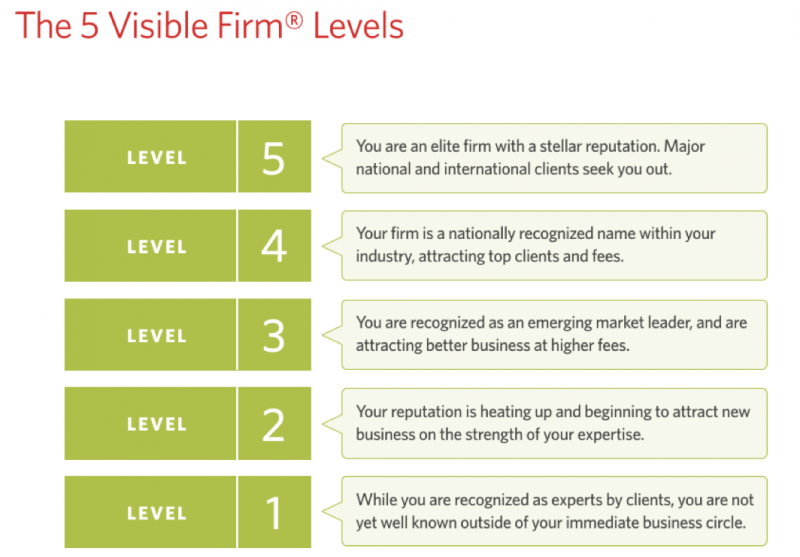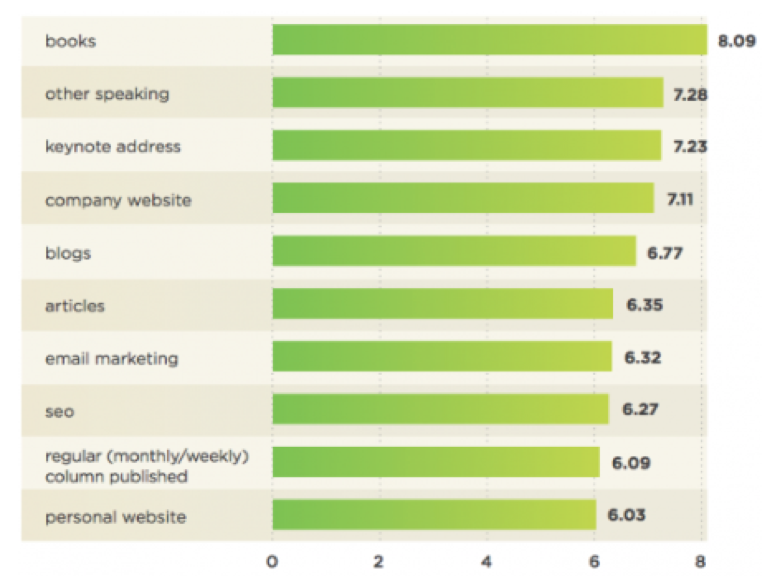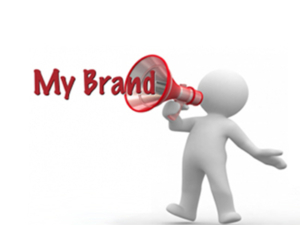
Guest contributed by Elizabeth Harr
Personal brands are a hot topic in executive circles for good reason.
Just like a firm’s brand, a well-developed personal brand allows professionals a meaningful way to stand out in a crowded marketplace. Built correctly, a personal brand is neither self-indulgent nor self-promotional – but instead is a platform for promoting specialized expertise. And expertise – particularly specialized expertise – is consistently a top criteria buyers of professional services use when selecting a firm with which to do business.
While it’s hard to argue with the merits of having a strong personal brand, the more challenging conversation is around the specific steps and strategies needed to make it happen. If I had to offer one guiding principle for all executives to embrace as they embark in their own brand journey, it would be to employ purpose as your bouncer. This has come be a favorite mantra of my own ever since I heard it on a podcast from Whitney Johnson, the creator of the Disrupt Yourself podcast series. I love this expression because it’s a reminder that each of us is in charge of the multiple decisions we’ll have to make about our personal brand. What tools should you invest in? Where should you speak? What topics should you write about? What really should you be known for?
Adhering to a strict standard for how you evaluate personal branding decisions can make all the difference in time, in money you invest, and in how well you are received by the outside world. With purpose as the bouncer of your decisions, your personal brand will fill a void in the marketplace with a fresh and much-needed perspective on the problems your audience is trying to solve. Put another way, applying purpose – in the context of what matters most to whatever audience you seek visibility with – prevents you from adding to the noise, or worse, showing up as a generic jack-of-all-trades services provider.
Now everything I’ve said so far probably falls more under the category of philosophy rather than practical advice. However, with purpose as your gatekeeper and bouncer, implementing the following steps will be much easier and more effective. So let’s get to it.
Creating Your Personal Brand Strategy
Step 1: Understand where you’re starting from. Before you begin building your brand, you need to make an honest assessment of your brand’s existing qualities and level of visibility. Visibility can be defined in five distinct levels to help executives assess their baseline position, which in turn helps them stay realistic about how far they can climb. Are you at the level of a Resident Expert, where you’re known to a very small and defined circle? Or are you a Rising Star, where you’re just starting to expand your network and are becoming visible to a wider audience? It’s also important to define where you want to go. If your goal is to become a sought-out (and paid!) keynote speaker on the global stage for example and you’re barely past the first stage of your journey, you’ll be looking at an aggressive path forward that has a different investment of time and money relative to a goal of becoming highly regarded regional player for example.

Figure 1: The Five Levels of Visibility
Step 2: Zero in on specialized expertise. Perhaps you are an expert in something already. That’s fine, but is your messaging for that expertise fairly broad (“M&A advisory,” for instance), or is it specialized (such as, “post-merger acquisition integration”)? If you haven’t done so yet, think about narrowing your focus. If you’ve tried unsuccessfully to pare down your services, at least try to be more tightly focused on which topics you write and speak about. Once you’ve done this, your ‘purpose bouncer’ should get busy, turning away any other blogging or speaking opportunities that don’t fit with the central thesis of your personal brand.
Step 3: Target a specific audience. What types of industries or organizations will be procuring your services? Who influences your buyers’ purchasing decisions? What positions within client firms will buy your services? The answers will dictate which people you should be communicating with in every blog post, speech, book, and webinar. Keep your audience in mind whenever you’re writing. It will help you stay on point, and attract the right kinds of prospects to your business.
Step 4: Find your own viewpoint. This essential step can help to differentiate your personal brand in a big way. If you can associate your personal brand with a specific issue, or lead with a point of view that’s controversial or counterintuitive, it’s often easier to attract attention. Doing so can also give you a unique perspective that will put your unmistakable stamp on each piece of content you develop.
Step 5: Select your tools. There are many choices — too many, in fact — for how you will push out messages to support your personal brand. The tools that tend to have the greatest effect on a personal brand fall within the three pillars of high-growth marketing: speaking, publishing, and networking (both in person and digitally through social media networks). The figure below depicts the top 10 most effective tools as well as their efficacy score on a scale of 0 – 10. As you can see, these run the gamut from having a personal website to publishing your own books. Of course, if you have experience with other tools, such as webinars or video, you can make them part of your plan as well.

Figure 2. Personal banding tools ranked by impact (0 = least, 10 = greatest)
Step 6: Evaluate your skills — and be brutal. This may be the most difficult step — especially if you’re doing it yourself. It’s so hard to be objective about one’s own strengths and weaknesses. Try to honestly evaluate your proficiency in each of the skill areas shown in Figure 2. Is your writing as good as you think it is? How strong are you as a public speaker? Which skills need the most work? Prioritize these skills, and decide which ones you can work on by yourself, and which may require finding or hiring a teacher or mentor. And that brings me to…
Step 7: Build a support team. The great majority of us need at least some help on the personal branding journey, and many may actually need a great deal. So one of the first things you need to decide on is how you want to make the climb: as a truly solo ascent with just an oxygen tank, or accompanied by a team of Sherpas? When you’re part of a larger organization, you sometimes have the built-in support by way of ghostwriters, SEO experts, graphic designers and website developers. If you don’t have access to these skill sets, you can look to freelancers to fill any gaps. In either case, line up your resources early in your process so that you don’t have to spend time tracking them down when you really need them.
Crafting your personal brand around what really matters in the marketplace – expertise – is the first step. In a sister article, I’ll cover how to design the supporting infrastructure you’ll need to really bring your brand to life in the form of content, profiles, and bios. Afterall, a plan is only as good as its execution, which in turn can’t happen without a solidly built infrastructure.
About the Author
Elizabeth Harr, Partner at Hinge, is an accomplished entrepreneur and experienced executive with a background in strategic planning, branding and growth for professional services. Elizabeth co-founded a Microsoft solutions provider company and grew it into a thriving organization that became known for its expertise in Microsoft customer relationship management.
The opinions and views expressed by guest contributors are their own and do not necessarily reflect those of theglasshammer.com




